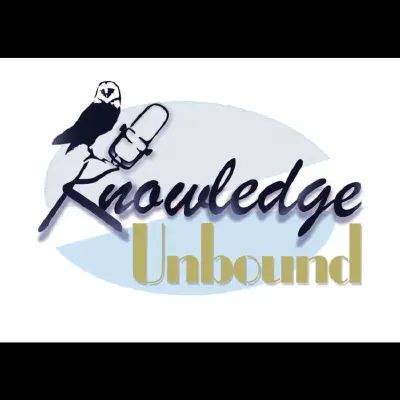
Knowledge Unbound
16 episodes Last Updated: Apr 30, 25
The RIOS (for a Racially-just Inclusive Open STEM Education) Institute presents an interview podcast where Dr. Bryan Dewsbury of the Science Education And Society (SEAS) lab converses with individuals who do social justice work in science education and education in general. We hope people enjoy the conversation itself, and consider new ways in which education can be transformative whatever your situation may be.
Episodes
We are joined this week by Dr. Maha Bali of American University, Cairo. We talk teaching, AI, diversity, open, and other possibilities for transformative education in the Egyptian and international context. Thanks to Maha for hosting me and having this great conversation.
In today's episode Dr. Riddell shares her journey in higher education particularly as it led towards the writing of one her books 'Hope Circuits' and the concept of Hope University. We will explore a more expansive view of hope, necessary as higher education continues to chart paths into uncertain futures.
This week, longtime educator Kimberly Minors joins me to talk teaching, education and general social change in the Conmonwealth of the Bahamas. Kimberly discusses her experience as a classroom teacher and as a consultant to the education system there, highlighting the reality that educating well is about knowing the whole person and the society education is meant to improve.
This week I was joined by Dr. David Asai. David shared with me his journey, his father's journey, and how lessons from both tell us a lot about race, ethnicity and belonging in America. We discuss this rich personal history and muse on what it means for our collective responsibility to offer a rich, meaningful higher education experience.
In this, the first episode of Season 2, I talk with Heather Beem, founder of the Practical Education Network, about serving others, your why, and her own journey to designing an organization that makes cool science available to all, regardless of resource level. Heather talks about her journey from MIT field trip to the reach that her organization has across the continent of Africa.
In this special bonus back-to-school episode, Roxanna Elden, former high school teacher and author of See me after class: Advice for teachers by teachers and Adequate Yearly Progress talks to us about unpacking all the tiny things about effective classrooms that perhaps we don't always want to discuss. We hope this witty conversation provides useful tips for you as we enter into this academic year together.
This week, in our final episode of Season 1, Dr. Mays Imad shared with us her journey from Baghdad, Iraq to Connecticut College and her internationally renowned work on trauma informed education. She implores us to think of education as opportunities for healing and growth, such that both our students and us can become more whole from the experience.
Maisha Moses, Executive Director of the Young People's Project (YPP) talks with us about the organization's founding and the ways in which it has built off of the work of civil rights leader, and her father Robert (Bob) Moses. Sprung from the Algebra Project (AP), a program that works with secondary school students who live in conditions that do not support their success, YPP helps cultivate agency among AP students who then go on to teach middle students algebra. We talk about what it means to cast your bucket, as in to go deeply into a problem with a community of students.
Executive Director of Exchange for Change joins us to discuss providing education to the incarcerated, education as a human right, and the ways in which her life experience impacted her desire to center humanism in education. Kathie was a journalist in Haiti for 30 years and shares with us lessons from that experience that informs her current work.
In this episode we discuss the formation of an incredible partnership around teaching and the ways in which that partnership led to classroom transformation, an acclaimed book on inclusive teaching, and professional development that continues to transform campuses nationwide. Our discussion helps explore the underbelly of what it really means to teach with students fully in mind.